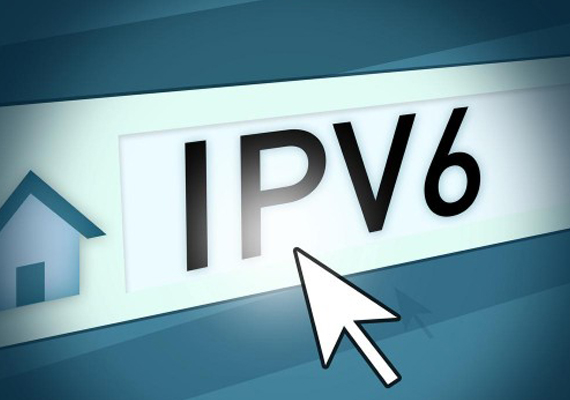Data privacy has become a critical concern in the digital age, as the volume of personal information shared and stored online continues to grow. The transition to IPv6 plays a significant role in enhancing data privacy by offering advanced security features and addressing the limitations of IPv4. This article explores the impact of IPv6 on data privacy and emphasizes the importance of adopting this technology for ensuring digital confidentiality.
Why is IPv6 Important for Data Privacy?
The transition to IPv6 is crucial for several reasons that directly impact data privacy. As the internet evolves, the need for more secure and scalable solutions becomes evident. Here are some key factors that highlight the importance of IPv6 for data privacy:
- IPv4 Address Exhaustion: The exhaustion of IPv4 addresses has led to the adoption of Network Address Translation (NAT), which complicates network configurations and can introduce vulnerabilities. IPv6, with its vast addressing space, eliminates the need for NAT, reducing potential security risks and simplifying network management.
- Enhanced Security Features of IPv6: IPv6 was designed with security in mind, incorporating IPsec as a mandatory component for ensuring secure data transmission. This built-in security feature helps protect data from interception and tampering, thereby enhancing data privacy.
- Necessity to Protect Personal Data: As regulatory requirements for data protection become stricter, organizations must adopt technologies that offer robust security. IPv6 supports the implementation of privacy extensions, which can help obscure the user’s identity by randomizing IP addresses, making it harder for malicious actors to track users online.
How to Use IPv6 for Data Privacy: Application Examples
IPv6 provides various tools and configurations that can be leveraged to enhance data privacy. The following examples illustrate how IPv6 can be utilized to protect sensitive information and ensure secure communication:
- Privacy-Focused Network Configurations: IPv6 allows for the use of temporary, randomized IP addresses, which can be periodically changed to protect the user’s identity. This privacy-focused configuration helps prevent tracking and profiling by third parties.
- Using IPv6 for Secure Data Transmission: With IPsec integrated into IPv6, organizations can establish secure communication channels that encrypt data during transmission. This ensures that sensitive information remains confidential and is not accessible to unauthorized parties.
- Integration of IPv6 with VPN and Encryption Technologies: IPv6 can be seamlessly integrated with Virtual Private Networks (VPNs) and other encryption technologies, providing an additional layer of security. This integration helps safeguard data privacy by ensuring that all data transmitted over the network is encrypted and protected from interception.
What are the Structures of IPv6 Infrastructure for Data Privacy?
To fully leverage the benefits of IPv6 for data privacy, certain infrastructure architectures and protocols must be in place. These structures are essential for creating a secure environment where data can be stored, processed, and transmitted with confidence:


- Secure Network Architectures and Protocols: IPv6 supports advanced routing protocols that enhance the security of network architectures. These protocols help ensure that data is transmitted securely and that unauthorized access is prevented.
- The Impact of IPv6 on Data Storage and Processing Systems: IPv6’s ability to support large-scale addressing allows for better segmentation and isolation of data within networks. This improves data security by limiting access to sensitive information and reducing the risk of data breaches.
- Key Features and Standards of IPv6 for Data Privacy: IPv6 supports various standards and features designed to protect data privacy. These include privacy extensions, which help obscure user identities, and IPsec, which provides end-to-end encryption for data transmission.
The Importance and Benefits of IPv6 for Data Privacy
The transition to IPv6 offers numerous benefits for data privacy, making it an essential component of modern network infrastructures. Here are some of the key advantages:
- Enhanced Security Measures and Data Integrity: IPv6’s built-in security features, such as IPsec, help ensure the integrity of data by protecting it from unauthorized access and tampering. This enhances the overall security of digital communications and protects sensitive information.
- Better Protection of Personal Data and User Trust: By supporting privacy extensions and other security features, IPv6 helps protect personal data from being exposed or tracked. This builds user trust, as individuals can be confident that their information is secure.
- Compliance with Digital Privacy Standards and Legal Requirements: With growing regulatory pressures, organizations must comply with strict data protection laws. IPv6 facilitates compliance by providing the necessary tools and features to safeguard data and meet legal requirements.
Conclusion: IPv6 Transition: A New Step in Data Privacy
The transition to IPv6 marks a significant advancement in the effort to enhance data privacy. By offering advanced security features and addressing the limitations of IPv4, IPv6 provides a robust framework for protecting personal information in the digital age. As organizations continue to adopt this technology, they will be better equipped to safeguard data and meet the demands of an increasingly privacy-conscious world. To learn more about the impact of IPv6 on data privacy, read the full article here.




